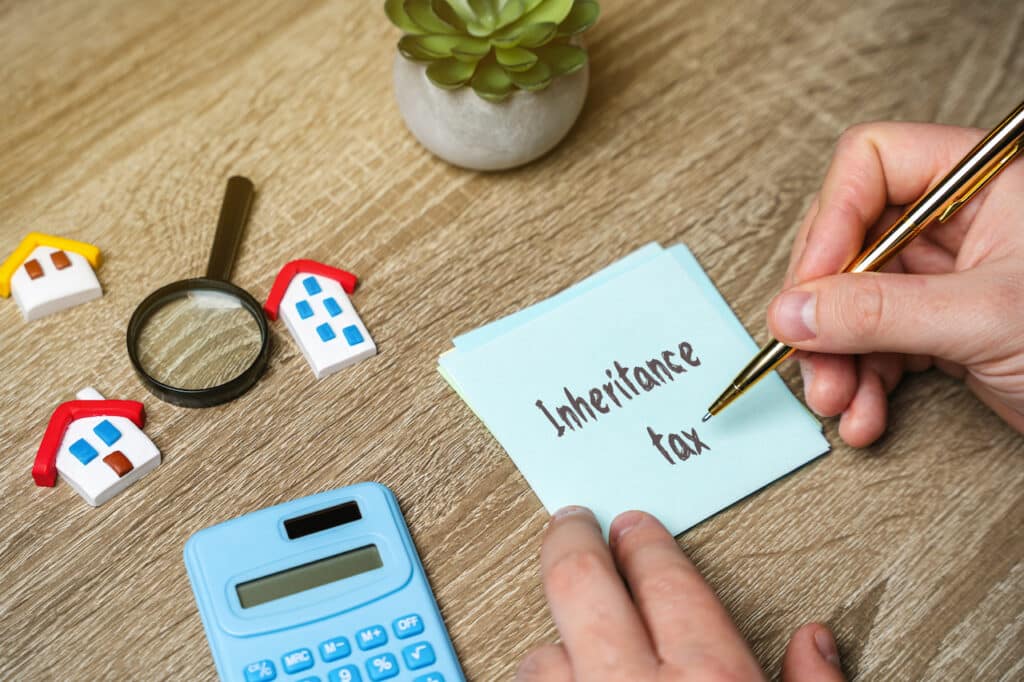Living abroad comes with a lot of perks—new foods, new friends, and the chance to answer “where are you from?” in increasingly creative ways. But for U.S. citizens, green card holders, and resident aliens living in a foreign country, there’s one not-so-fun challenge that comes with the adventure: double taxation.
The IRS loves to keep tabs on Americans everywhere, but luckily, the bona fide residence test can help lighten the tax load. Qualifying means you may unlock valuable tax benefits and exemptions, potentially reducing your U.S. income tax bill while you’re living your best life abroad. So, what exactly is the bona fide residence test—and why does it matter so much for expats? Let’s break it down.
📋 Key Updates for 2025
- For tax year 2025 (filing in 2026), the Foreign Earned Income Exclusion increases to $130,000, up from $126,500 in 2024.
- New IRS Revenue Procedure 2025‑17 details eligible countries where time requirements may be waived due to war or civil unrest, helping bona fide or physical presence test claims.
- In 2025, the IRS is paying closer attention to residency claims, especially for self-employed, digital nomads, or those with ambiguous tax-home situations.
Understanding the Bona Fide Residence Test
Moving abroad as an American comes with a big question: Will you have to pay U.S. income tax on everything you earn overseas? The IRS says “yes”—unless you qualify for a special break called the Foreign Earned Income Exclusion (FEIE). This exclusion can help you avoid double taxation by letting you exclude a chunk of your foreign income from your U.S. tax bill.
But there’s a catch: Not everyone qualifies automatically. To claim the FEIE, you need to pass one of two IRS tests:
- The Physical Presence Test: This is the straightforward, numbers-based option: Did you spend at least 330 full days in a foreign country during a 12-month period?
- The Bona Fide Residence Test: This one’s less about counting the number of days and more about showing your life is truly rooted abroad. It focuses on your intentions, connections, and length of stay in your new country.
The bona fide residence test is for expats who settle into a foreign country and make it their real home for an uninterrupted, entire tax year. It’s not just about the amount of time spent abroad—it’s about building a life there. The IRS wants to see that you’ve truly planted roots: you might have a local bank account, rent or own a home, pay local taxes, and become part of the community.
💡 Pro Tip:
If you’re hoping to take advantage of tax breaks for Americans abroad, understanding how the bona fide residence test works (and how it differs from the “day-counting” physical presence test) is key.
Key criteria and documentation for bona fide resident status
To qualify as a bona fide resident in the eyes of the IRS, it’s not enough to simply live abroad for a while—you need to prove that your “tax home” (where you regularly live and work) is truly in another country, and that you plan to stick around for an extended period.
Key criteria include:
- Establishing a tax home: Your main place of business, employment, or post of duty must be in the foreign country.
- Maintaining a permanent home: Renting or owning a home abroad, enrolling kids in school, and making local connections all show you’ve put down roots.
- Clear intention to stay: The IRS looks for evidence you meant to make this country your real home—not just passing through for a short assignment.
What kind of documentation helps?
- Local bank account statements.
- Proof of foreign income or local employment contracts.
- Rental or property agreements showing your permanent home.
- Records of the full, uninterrupted calendar year you spent abroad.
- Foreign income tax returns (if you file locally).
- U.S. tax return showing your foreign address and details about your residency.
Showing you’ve met all these requirements—and can back it up with paperwork—is the key to being recognized as a bona fide resident and qualifying for valuable expat tax breaks.
💡 Pro Tip:
Keep a “residency folder” with copies of your foreign tax returns, lease agreements, employment contracts, and travel records. Having all your paperwork in one place can make it much easier to prove bona fide residency if the IRS ever asks for details.
How the Bona Fide Residence Test unlocks tax benefits
Qualifying as a bona fide resident of a foreign country is your ticket to some of the best tax breaks available to Americans abroad. Here’s how it pays off:
- Foreign Earned Income Exclusion (FEIE): If you pass the bona fide residence test, you can exclude a significant amount of your foreign earned income from U.S. tax—reducing your federal tax bill, sometimes to zero.
- Foreign Housing Exclusion: You may also qualify to exclude or deduct certain housing expenses, like rent or utilities, making expat life even more affordable.
- Self-employed and employees: Both can use these exclusions to lower their U.S. income tax liability, as long as they meet all requirements and maintain an uninterrupted period abroad.
- Tax treaties and “tax home” rules: Some countries have agreements with the U.S. that provide even more tax relief for bona fide residents, so check if your new country is on the list.
💡 Pro Tip:
Before making any big moves—like signing a long-term lease or taking a job abroad—double-check how your plans will affect your tax home and eligibility for these exclusions. A little advance planning can save you thousands on your U.S. tax return.
Common pitfalls to avoid
Even if you’re settled abroad, a few common mistakes can trip up your bona fide residency—and cost you valuable tax benefits:
- Holding onto a U.S. mailing address or property as your “main” home can signal to the IRS that you’re not truly committed to life overseas.
- Spending too much time back in the U.S.—even a few long visits during your qualifying year—may break your “uninterrupted period” requirement.
- Not gathering enough documentation (like foreign tax returns, lease agreements, or local bank statements) can make it tough to prove your status if the IRS asks.
- Missing or incorrectly filing IRS Form 2555 may lead to delays or even denial of the Foreign Earned Income Exclusion.
💡 Pro Tip:
If you know a trip to the U.S. is coming up, double-check how it might affect your residency status before you book. Staying a day too long can cost you thousands at tax time!
Professional help for complex tax situations
Even seasoned expats can run into tax headaches when life gets complicated. If your situation goes beyond “one home, one job, one country,” expert advice can help you avoid costly mistakes and make the most of every exemption. Here’s when to call in the pros:
- Splitting time between two or more countries each year (especially if your travel or work patterns change).
- Changing your country of residence or returning to the U.S. mid-year.
- Owning property or significant financial assets in the U.S. and abroad.
- Running a business, freelancing, or earning self-employment income overseas.
- Coordinating tax returns with a non-U.S. spouse or dependents.
- Needing to apply tax treaties or interpret dual-residency tax laws.
- Navigating the Foreign Tax Credit alongside the bona fide residence test.
- Late or missed tax filings, amended returns, or IRS compliance programs.
- Uncertain about what counts as a tax home, permanent home, or uninterrupted period.
Maximize your expat tax benefits
The bona fide residence test isn’t just another IRS hurdle—it’s your passport to real tax savings and fewer headaches as a U.S. expatriate. By proving you’ve truly settled abroad for a full tax year, you can unlock powerful benefits, steer clear of double taxation, and simplify your annual tax preparation.
But the rules can get tricky—especially if your expat life involves more than one country or some unexpected twists. That’s where professional help makes all the difference. Bright!Tax CPAs specialize in guiding U.S. taxpayers through every detail of the bona fide residence test, international income tax treaties, and all your filing requirements, so you can focus on your new adventure (not your tax forms).
Reach out to Bright!Tax today, and let us help you turn complex tax rules into simple wins—no matter where in the world you call home.
Frequently Asked Questions
-
What is the bona fide residence test?
The bona fide residence test is an IRS standard that helps determine if you’ve truly established your main home in a foreign country for an uninterrupted full tax year—allowing you to claim valuable tax breaks like the Foreign Earned Income Exclusion.
-
How is the bona fide residence test different from the physical presence test?
While the bona fide residence test looks at your lifestyle, intentions, and deep connections to your new country, the physical presence test is a numbers game: it simply counts if you spent at least 330 full days abroad in a 12-month period.
-
Can I travel back to the U.S. during my qualifying year?
Short, occasional visits to the U.S. are usually fine, but extended stays or moving back mid-year may break your uninterrupted period and cause you to lose eligibility.
-
What kind of documents should I keep to prove bona fide residency?
Hang on to foreign tax returns, lease or mortgage agreements, local bank statements, employment contracts, and records of your time spent abroad. These all help demonstrate your intention to make a permanent home overseas.
-
Does the bona fide residence test apply to green card holders as well as U.S. citizens?
Yes—U.S. resident aliens (green card holders) can also use the bona fide residence test if they meet all the requirements.
-
Can I use both the bona fide residence test and the physical presence test in the same tax year?
No, you can only use one test per year to qualify for the Foreign Earned Income Exclusion. However, you can choose the one that’s most advantageous for your situation.
-
Do I still need to file a U.S. tax return if I qualify as a bona fide resident abroad?
Yes, U.S. citizens and resident aliens are generally required to file a U.S. tax return every year, even if they exclude all their foreign income using the FEIE.
-
What should I do if I miss a year or make a mistake on my filing?
If you realize you’ve missed a tax year or filed incorrectly, consult an expat tax specialist about late filing or correction options like the IRS Streamlined Procedures.

 Connect on LinkedIn
Connect on LinkedIn

